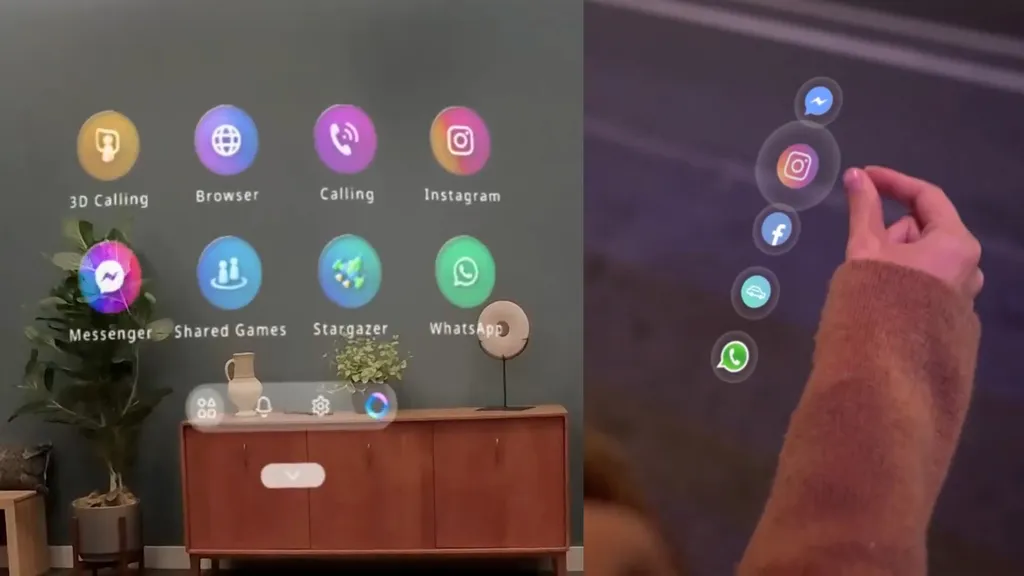Meta shared a short video showing off the operating system interface of its Orion AR glasses prototype.
The Orion AR glasses prototype was presented at Meta Connect 2024 in September. While Orion itself won't become a product, as the company admits it can't be mass produced, Meta does plan to eventually release AR glasses that "build on our R&D efforts with Orion", though with a narrower field of view.
As part of the Orion effort, Meta said it put together a prototype operating system, including user interface and key apps, in the months leading up to the Connect reveal. The new video shows off this interface, as well as some of those apps.
To Meta's credit, the video appears to show the field of view cutting off realistically and most virtual interfaces and objects as translucent, reflecting the limitations of transparent AR optics.
Developer Alex Coulombe, who published his Orion demo impressions on UploadVR, confirmed that the interface shown in the video matched what he saw. "For those wondering, no this is not a concept video, this is actually what it looks and feels like in there", Alex said on 𝕏.
It's interesting to note, however, that despite being less than 20 seconds, Meta's new video seems to show at least six separate app launcher main menu interfaces. This could suggest that some are concepts, or just that the company is experimenting with multiple approaches.
The six separate app launcher main menu interfaces shown.
You may be wondering why Orion doesn't just use Horizon OS, Meta's operating system for its Quest headsets. There are two likely reasons for that, and they both stem from the fact that AR glasses are a separate product category to mixed reality headsets, not a replacement.
The first is that Horizon OS is designed for (relatively) wide field of view headsets capable of full opacity, with a wide hand tracking volume, that are used mostly indoors, and mostly stationary. This results in quite different design considerations and constraints than AR glasses you'd want to use while outdoors and on the go.
The second is the performance envelope. Meta's CTO Andrew Bosworth recently said of Orion that "the compute envelope is 10x smaller" than Quest, and a former employee said he told staff to think of Orion as "more in line with a Gameboy Advance or a DS, not a PS3 or even a PS2 or PS1". That means a simplified interface with a different architecture and simplified, less ambitious apps.
It's a situation somewhat akin to why iPhone didn't run macOS and Apple Watch didn't run iOS. While those platforms do share core tech, as Meta has said Orion's OS does with Horizon OS, the app architecture and interface are quite different, owing to the different form factor. With the first consumer product reportedly slated for 2027, Meta will be spending the next three years figuring out what interfaces and approaches suit the unique form factor of AR glasses, moving what's seen in the video above from a rough prototype to what the company seemingly hopes will be the dominant platform for the future of computing.
































